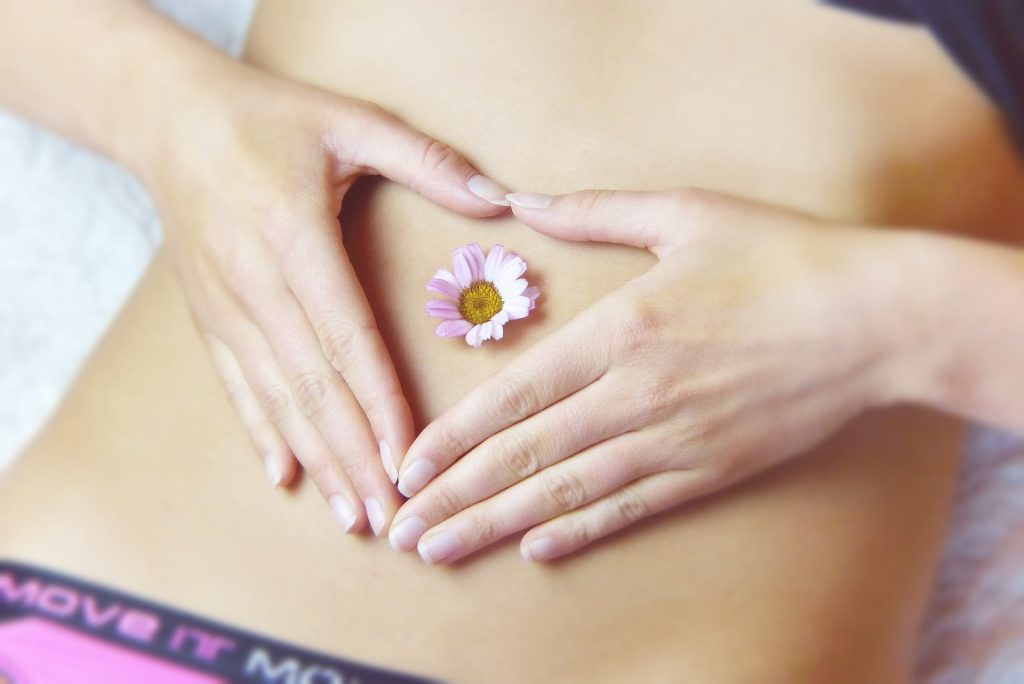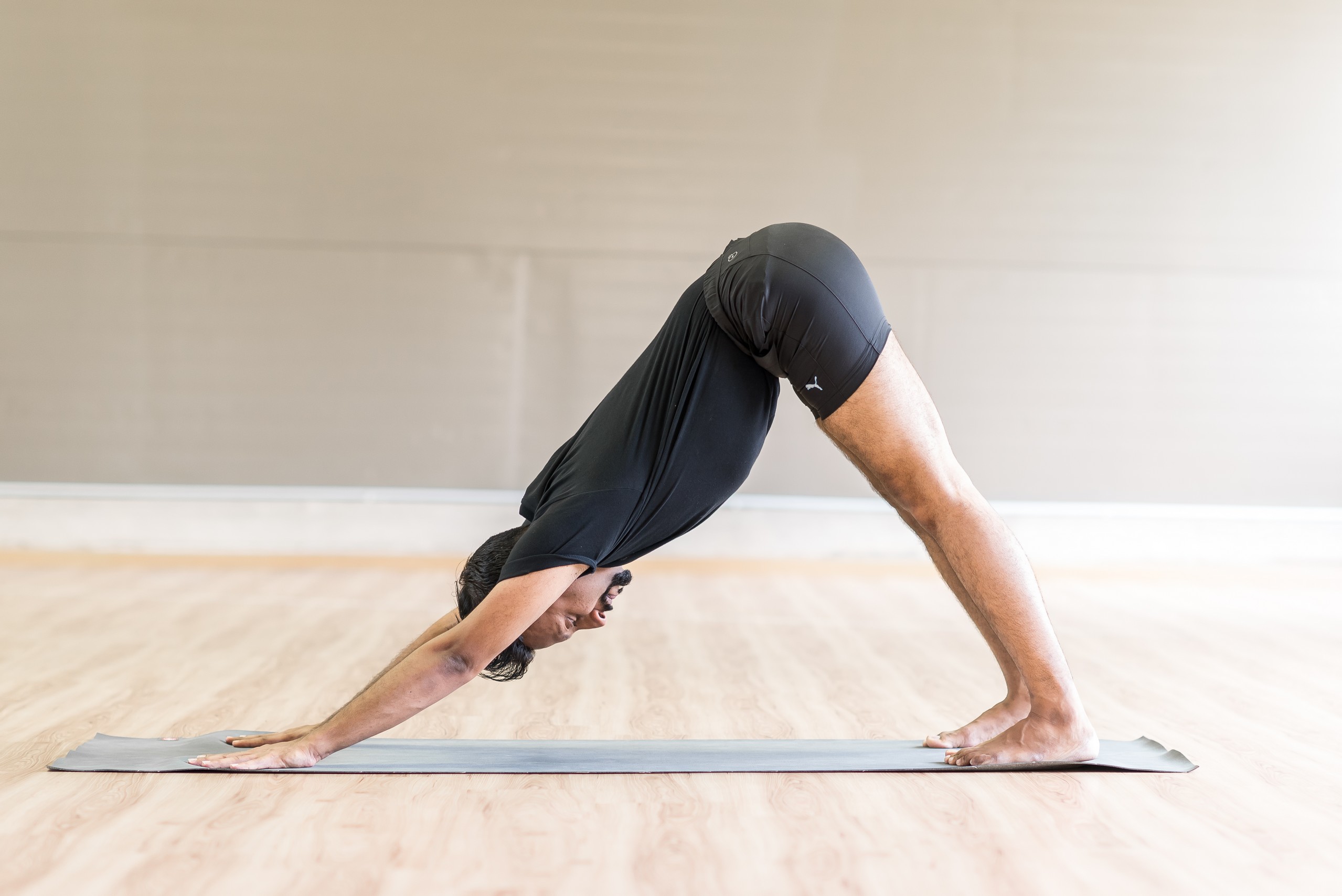8 Facts *Every* Man Should Know About Heart Health
Contributed by Tommy Wyher.

Did you know your heart will pump the equivalent of 1 million bath-tubs of blood in its lifetime?
Interestingly, the majority of causes of heart disease are related to lifestyle factors, so the health of your heart rests squarely in your hands. As a high performing pump that works non-stop 24/7, your heart requires care and maintenance.
Looking after your heart means it will keep on pumping! With that in mind, here are some other health facts about your heart to take into consideration. Some of which we’re sure you may not even be aware of…
The warning signs of heart disease
Heart disease is your body’s worst enemy, often resulting in heart attacks or even strokes.
Continue readingYour Gut Microbiome May Influence Your Heart Health (and Everything Else) – Here’s How to Take Care of It
Contributed by Ryan Peterson.

If you’re anything like most people, you’ve likely got a lot of respect for the health of your heart. And rightly so. When your heart is functioning optimally, everything in your life is simply better. Your mood will be better, you will be better able to perform strenuous physical activity, without as much stress, you’ll be healthier across the board, and – perhaps most importantly – you can expect to live significantly longer.
When people think about guarding their cardiovascular health, they generally think about things like eating wholegrain cereal, and getting plenty of time in on the treadmill or exercise bike.
All of these things are great, but have you ever stopped to consider how your gut microbiome may influence your heart health – and for that matter, every other facet of your health, in general?
For a long time, gut health was considered to be something that only really had implications for your physical comfort. Things like irritable bowel disorder were obviously noted to be unpleasant, but not much was understood beyond that.
Recent findings, however, – as detailed in Tim Spector’s book “The Diet Myth” have blown the lid off previous assumptions, and have driven home just how important gut health is, and why a trip to a GI doctor might be a great idea.
So, here are some tips for taking care of your gut microbiome.
Continue readingWhat You Can Do Starting Today To Help Improve Your Heart Health
Contributed by Amanda Ohls.

As we age it becomes more and more important to start considering our heart health. This should be a consideration for those who are much younger than you’d expect especially if the family has a history of heart conditions. A proactive approach to understanding what impacts your blood pressure or cholesterol is important. People often times make poor health decisions on account of a lack of knowledge which can be remedied through proper research. The following are a few things that you can do to start improving your heart health now.
Quit Smoking NOW!
Smoking cigarettes is bad for every part of your body from your lungs to your heart. The ability to quit smoking is something that many people do not possess on their own so they are going to need support. Vapes that are commonly used instead of cigarettes can provide smokers a way to get their nicotine fix and slowly wean themselves off of the substance. Many people have turned to electronic cigarettes as they seem to be less harsh than the alternative while not leaving the smoker smelling like an ashtray. These are not safe alternatives to smoking but can help reduce chemicals ingested when compared to traditional cigarettes.
Find Time To Unwind
Stress can lead to increased blood pressure and can be a huge issue if you do not find to unwind. This relaxation time is to recharge both your mental and physical batteries. Something like relaxing with essential oils from MadeWithOils.com can make a huge difference in stress levels. There are also exercises that you can practice if often times you feel flusters and feel your blood pressure increasing. Do not let stress get the best of you and beat it by managing your relaxation time appropriately.
Eliminate Excessive Alcohol Usage
Excessive alcohol consumption is going to be bad for your blood pressure as well as your liver. The stress that alcohol puts on the body is immense especially for those binge drinkers. Combine this with the fact that alcohol has copious amounts of calories as well as people make unhealthy dietary decisions when drunk makes this tough on the heart. This does not mean that one glass of red wine a day is bad when in fact it can be healthy. Excessive alcohol use on the other hand is not good for the drinker’s body in the slightest.
Why Going Upside Down in Yoga Helps Your Heart
Guest post provided my yoga teacher Meera Watts.

Turning yourself upside-down contradicts your physical nature. However, if you closely study inversion yoga, you’ll realize that inverting yourself has a handful of benefits, particularly to your heart.
If you’re interested to know what those benefits are, here are some of inversion yoga’s positive effects on the heart.
Your Blood Flow
Anatomically speaking, your heart can be found in your chest cavity. It functions to pump oxygenated blood to the different parts of your body by way of your arteries. At the same time, it receives deoxygenated blood which carries waste products through your veins.
Now, because the heart is placed high up in your body when you’re standing up, problems happen with your de-oxygenated blood flowing back to the heart due to gravity’s force. And if those problems aren’t solved right away, you can end up suffering different health consequences. Some examples include swollen legs and feet, varicose veins, and even pulmonary embolism.
Positioning yourself upside down can help improve the flow of blood back to the heart. Also, it can improve perfusion of your blood across your lung’s surface area.
Your Breathing and Diaphragm
Just beneath your lungs and heart lies your diaphragm. It’s a large muscle that’s mainly responsible for breathing. And just like the other muscles in your body, you need to work it to make it stronger.
When your diaphragm contracts, it’s generally working with gravity. It’s the reason why you can feel and see your belly bulging when you’re breathing in.
Continue reading
Vitamin D for Heart Health

Vitamin D deficiency is a risk factor for cardiovascular disease. Low vitamin D levels lead to high blood pressure, diabetes, intima-media thickness, and coronary calcification.
Cellular vitamin D receptors are found to affect inflammation, suggesting vitamin D may not only impact risk factors contributing to heart disease but may also directly impact on heart disease.
How much vitamin D do you need?
The Food and Nutrition Board (FNB) develops Dietary Reference Intakes (DRIs), which are broken down into Recommended Dietary Allowance (RDA), Adequate Intake (AI), and Tolerable Upper Intake Level (UL).
We use these established DRIs to know how to of a nutrient to include in our diet daily for optimal health.
The FNB recommends 600 IU of vitamin D daily for men and women between the ages of 19-71 years-old.
What happens if you get too little vitamin D?
A study conducted at the University of Copenhagen reviewed data from studies with more than 10,000 participants comparing those with low vitamin D levels (less than 15 ng/mL) versus the highest levels (more than 50 ng/mL). Those with low levels were 64% more likely to have a heart attack, 40% more likely to develop ischemic heart disease, had a 57% increased risk of early death, and 81% more likely to die from heart disease.
What happens if you get too much vitamin D?
The UL for vitamin D is set at 4,000 IUs per day. Intakes above this level are connected to elevated serum levels that increase risk for adverse health effects. Long-term intakes above the UL increases risk for cardiovascular events, such as heart attack.
How to include vitamin D every day:
Obtaining needed nutrients in your diet is always preferable to supplements. However, vitamin-D rich foods are limited.
So, what can you do to ensure you receive 600 IU of vitamin D daily?
Foods rich in vitamin-D include:
Fatty fish, such as salmon, tuna, and mackerel are top sources of vitamin D.
Most milk in the United States (US) is fortified with vitamin D. Note: Cheese and ice cream are not fortified with vitamin D.
Cod liver oil contains 1300 IU’s of vitamin D. This is twice the RDA, but does not exceed the UL.
One of the best vitamin D sources is not found in the grocery store.
Sunlight.
Twenty to twenty-five minutes of sun exposure without sunscreen allows your body to produce vitamin D. However, where you live impacts whether or not sunlight is adequate.
If you live above the 40th degree latitude (i.e. North of Denver, CO) sunlight is not adequate during January and February. If you live above the 42nd degree latitude (i.e. North of Chicago, IL) sunlight is not adequate between November and February.
For more information on foods and diet to lower cholesterol and promote heart health, sign up for my free e-course How to Lower Cholesterol in 8 Simple Steps HERE.
All the best,
Lisa Nelson RD
Health Pro for HealthCentral
How to Get a Good Nights Sleep for Optimal Heart Health
 Bryce Wylde, leading alternative health expert, has provided a wealth of information regarding the impact of sleep on health. If you’ve missed a part of this sleep series…
Bryce Wylde, leading alternative health expert, has provided a wealth of information regarding the impact of sleep on health. If you’ve missed a part of this sleep series…
Part 1: Sleep Deprivation and Heart Disease
Part 2: The Effects of Snoring Go Beyond Heart Disease
Now, let’s summarize the health risks of sleep deprivation and move on to steps you can take to reduce risks by ensuring a quality nights sleep.
Sleep deprivation and health risks
Chronic sleep deprivation due to causes such as snoring and sleep apnea increases your chances of diabetes, depression, cardiovascular disease, hypertension, weight gain and even a fatal car accident.
Poor sleep hygiene is likely one of the most common problems encountered in our society leading to sleep deprivation. As a society, we generally stay up too late and get up too early. We have over exposure to artificial light which impedes the hormones that regulate sleep. We interrupt our sleep with drugs and chemicals. We work too many hours sustained on too much caffeine. Not to mention, we fill our heads with negative news headlines just before we hit the hay.
How to get a good nights sleep
Here is how you can successfully achieve optimal sleep hygiene:
Bryce’s first tip! Don’t push snooze in the morning! Research shows that snoozing doesn’t benefit you. Getting too little – and even too much – seems to negatively affect memory according to the Harvard-based Nurses’ Health Study whose findings were published in the Journal of the American Geriatrics Society. So, try and sleep like Goldilocks and aim for just the right amount of sleep!
Use comfortable bedding that helps you regulate temperature. Research shows about 60-67 degrees Fahrenheit is optimal.
Set your alarm twice in 24 hours. The first alarm should go off at your bed time! This will alert you to the time you need to hit the sack to achieve the necessary 7-8 hours.
Don’t take your worries to bed. Create a written list and leave it in the kitchen. Practice relaxation techniques before bed such as deep breathing and visualization. Tell yourself the list is done and you will get to it in the morning.
Drown distracting noise, and eliminate as much light as possible. Consider an eye mask. But, if you or your partner snores or has congestion, my favorite product on the market right now is appropriately and ingeniously called “Mute” by Rhinomed. Both snorers and their partners report a better night’s sleep when Mute is used, waking more refreshed. In fact, in a user trial, 75%* of partners reported snoring was either less or much less when the snorer used Mute. And let’s not forget how this issue isn’t just about the snorer but also about the partner who loses sleep while enduring the agonizing noise of the snorer! The reason I love Mute so much is that it is individually adjustable on each nostril so it fits all nose types. This enables the device to comfortably adjust to asymmetrical noses or noses with deviated septums. I have a nasal septal defect (one nostril is distinctly smaller than the other which causes me to snore). When you first put in Mute, you get an instant rush of air; you can really feel the difference. It is super easy to find by the way – available at Walgreens, Bartell Drug, CVS, Duane Reade and even online at mutesnoring.com.
Avoid napping more than 15 minutes. Do what truckers do and set your alarm for 10 to 15 minutes! Longer than that and you run the risk of entering a sleep cycle (above) thereby robbing one of the sleep cycles from happening at night. Don’t forget, you can’t “catch up” on your sleep.
Avoid alcohol and caffeine 4-6 hours before bedtime. Caffeine avoidance is obvious. But where alcohol may have immediate sleep-inducing effects, a few hours later as the alcohol levels fall and interrupt your sleep cycle by interfering with your sleep architecture.
Exercise intensely and regularly, but not right before bed! Aim for the morning time to exercise. If you exercise too soon before bed you run the risk of increasing body temperature which makes it more difficult to fall asleep.
Warm milk and foods high in the amino acid tryptophan, such as bananas and pumpkin seeds, may help you to sleep. A formula commercially available and researched for its safety and efficacy in keeping you asleep is called “Zen Bev” a formula created using pumpkin seeds yielding a high amount of naturally occurring tryptophan.
Watching TV or engaging in social media in bed is also a bad idea. Besides some of the controversial evidence about its light emission, these are very engaging mediums that tend to keep you up by keeping your mind overly active.
Your goal is not to sleep like a baby! They do tend to sleep long hours (more than you will need) but are also restless and wake up multiple times through the night. You want to sleep like a log: Quiet and waking up in nearly the same position you fell asleep in. Use Bryce Wylde’s tips above and you’ll get there!
Drs. Chris and Kara Mohr developed the 21 Days to Better Sleep program. I highly recommend it. Their videos with instructions are engaging and the content can be put to good use so you achieve quality sleep each night. Learn more and purchase the program here.
All the best,
Lisa Nelson RD
*results may vary (n=236, 2014); Based on 2014 Mute user study with 118 couples.



